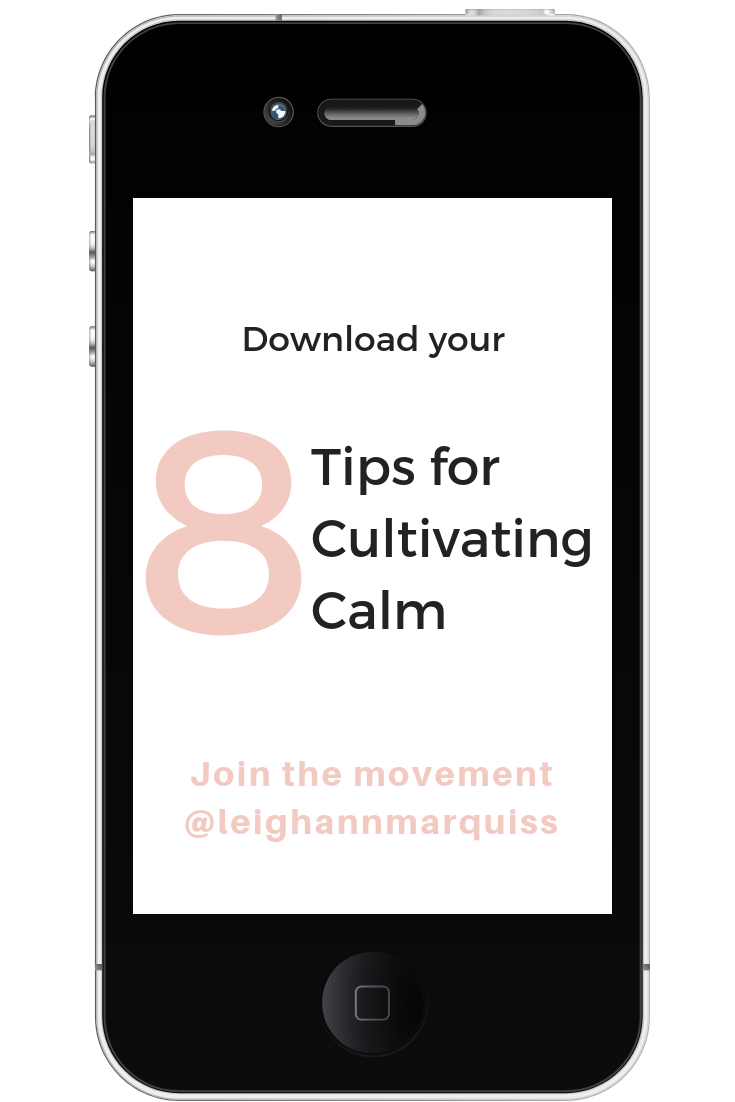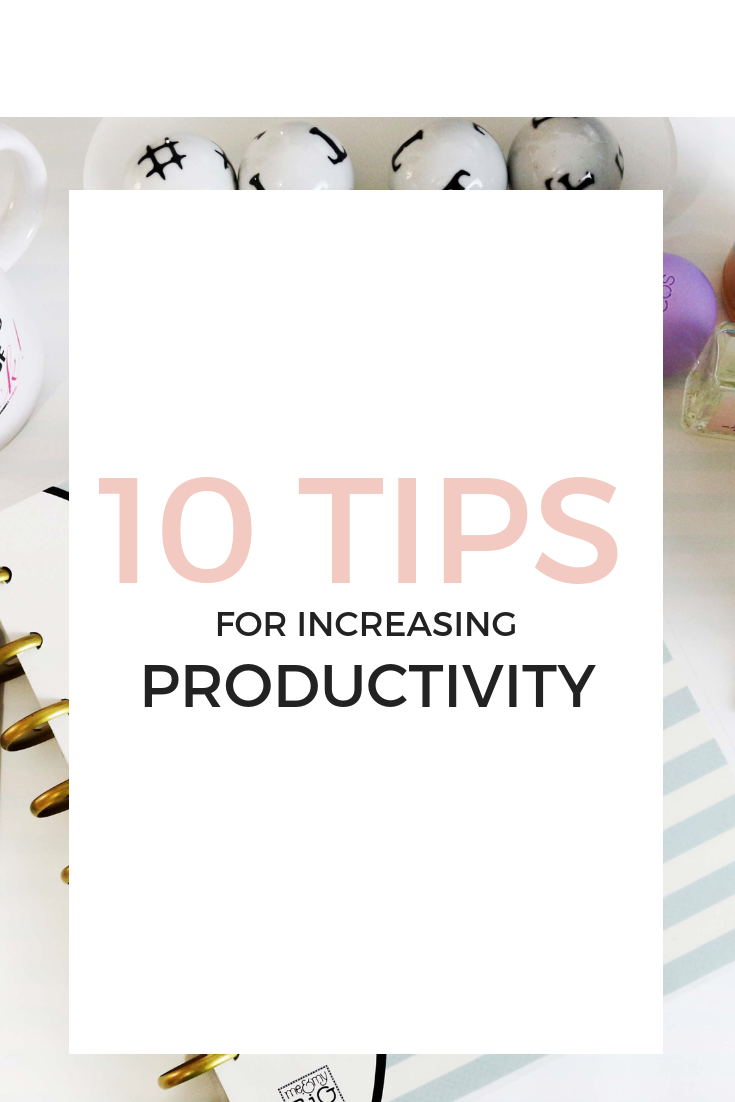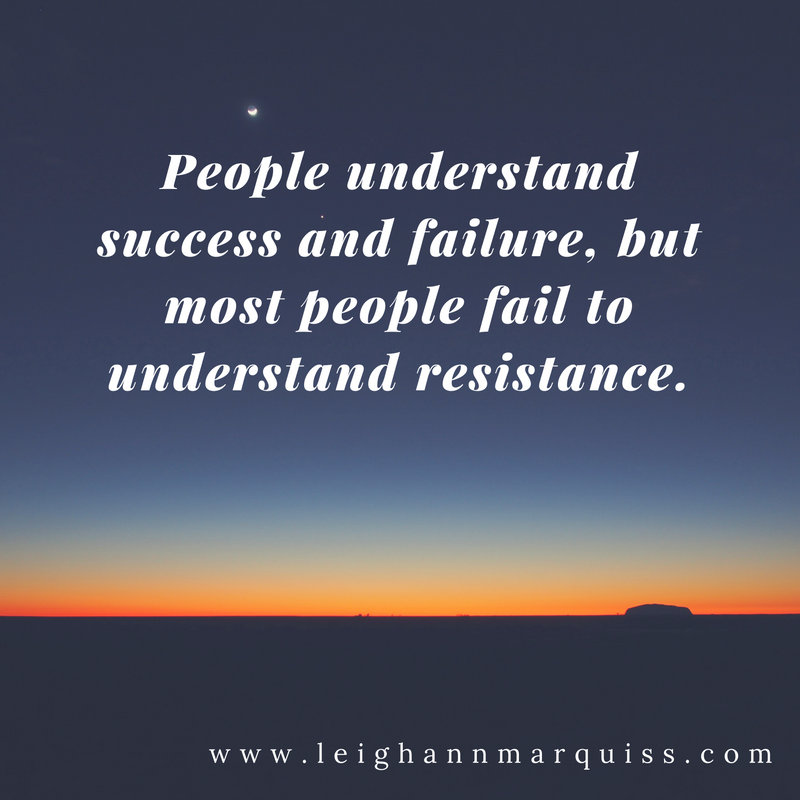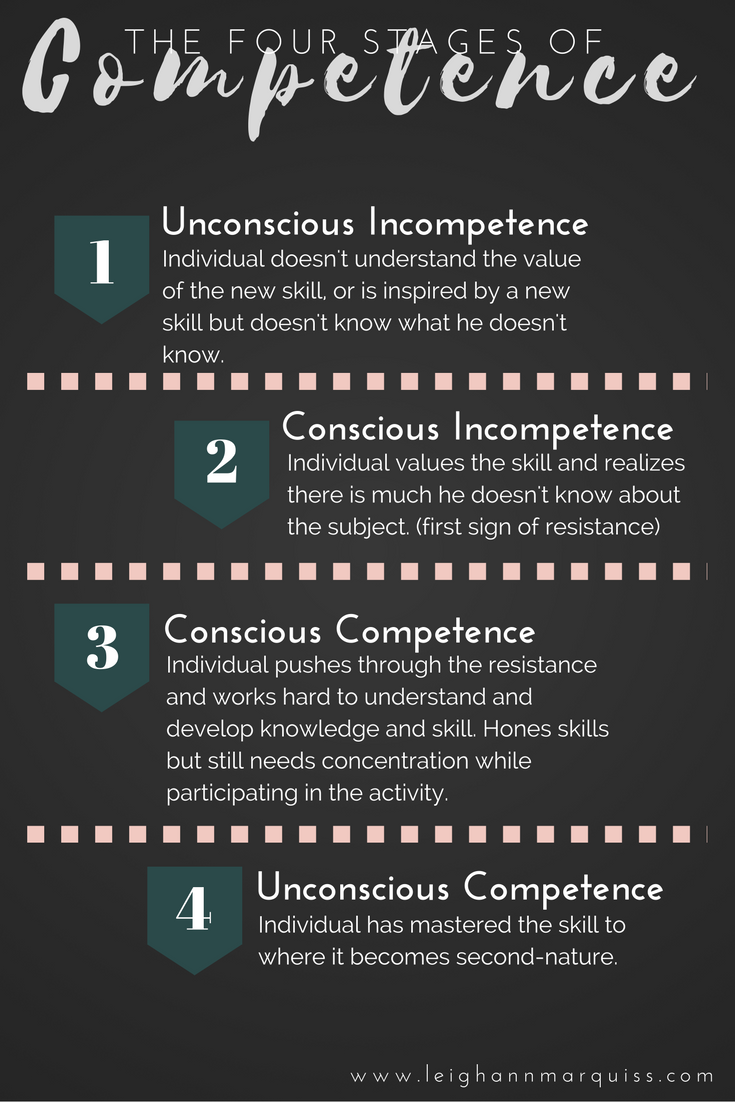Goals Schmoals
Goals can be set any time of year, but New Year’s seems to be the universal time that humanity takes a good look at life and decides how they want it to be different. And while there seems to be a lot of reflection and goal setting, according to The Brain Research Institute, 92% of people who set New Year’s resolutions fail to accomplish them. Let’s be part of the 8% who follow through. Failing to accomplish goals comes down to one itty-bitty thing that most people fail to consider.
People understand success and failure, but most people fail to understand resistance. {tweet that}
In the 1970s, a theory evolved called The Four Stages of Competence which explains the idea of how resistance hinders growth. By understanding the components, we can recognize them in the moment and overcome them by pushing through.
Stage One
The first stage is called Unconscious Incompetence. It’s the stage where someone doesn’t understand what they don’t know about a subject. Sometimes they don’t even understand its importance, but often times, it’s the stage where we are inspired to learn something new, yet have absolutely no idea how much we need to learn to master it.
My daughter, Natalie, has been playing the violin for four years. I remember when she brought home her first student violin and was excited to play it for the first time. Her little third grade hands lovingly cradled the wooden instrument and plucked at the strings.
It was then she realized her desire to play the violin didn’t translate into actually being able to play. In fact, with every note she tried to play the more she realized there was a lot more to playing the violin than she thought. Not only was her tone squeaky and off-key, but after playing for a few minutes her finger muscles were sore and the tips of her fingers burned.
“I don’t want to play this anymore, mommy,” she said, frustrated.
I knew how she felt (except for the burning fingertips part) because I’ve had more than my fair share of inspirational moments. I gave her the best advice I had…
“I know, baby. It’s hard right now. Starting anything new is hard and requires hard work to learn. We want to be experts the moment we pick it up, but that’s not how life works. The more we practice, the better we get, and the better we get, the more we enjoy it. But first comes the hard work. And that starts with sticking with it.”
All of us are like Natalie. When it comes to learning something new or following through on a new year’s resolution, we’re inspired by something – – a great musician, an amazing artist, or an acquaintance who is fluent in four languages. Whatever or whoever it is who inspires us is most likely not just starting out. We forget that we must start at square one.
Stage Two
When we start at square one, we realize just how much we don’t know. We encounter our first taste of resistance and come into the second stage called Conscious Incompetence. The fairytale is gone and in its place is sore fingertips or sloppy landscapes. It’s here we must decide if we’ll carry on…. Will we get up earlier so we can hit the gym before work, will we practice our language lessons instead of binge-watching the latest tv show, will we push through the difficulty it takes to learn something new?
Most people give up right here. The change just isn’t worth the time and effort. They’ve lost their inspiration and aren’t emotionally drawn to their “why.”
Stage Three
For those of us who understand that resistance is part of the game, we will push forward and practice or get up earlier or spend our time more purposefully. And in that, we will move into a place where we may still need the sheet music or a cheat sheet of brush strokes, but we’ll be able to make something that resembles the art that inspired us in the first place. This is the third stage called Conscious Competence.
Stage Four
For those that push on, putting in hours of practice, attention, or sweat, the reward is having that skill become second-nature, and the final stage of resistance called Unconscious Competence. We almost don’t even have to think about how to do something anymore, we just do it. Sometimes we entertain others with our new skill or teach, thus passing our new skill on to others.
Malcolm Gladwell calls the masters, The Outliers. They become those who inspire others to take up this talent as well.
Natalie isn’t quite an Outlier when it comes to playing the violin. She doesn’t aspire to become a concert musician. However, she has moved into the joy phase. She tells me that she can’t stop smiling when after hours of rehearsing her part on her own she hears the piece come together with the orchestra. Her craft continues to inspire her, she has pushed through the resistance and is living in the somewhat conscious, but competent stage. She might even be ready to pick up another instrument and give it a try. She’s ready to learn something new.
And really, that’s something we can all aspire to.
In the mood for making goals? Download these free worksheets to get started.
If you found this article helpful, please share via the social media buttons below.
Did you like the article, but crave more? I can help with customized coaching for your situation. Click here to find out more.
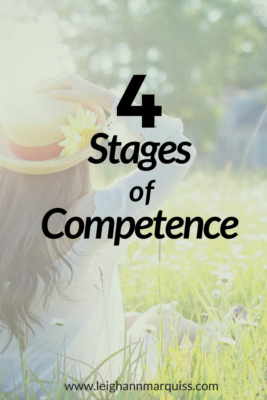
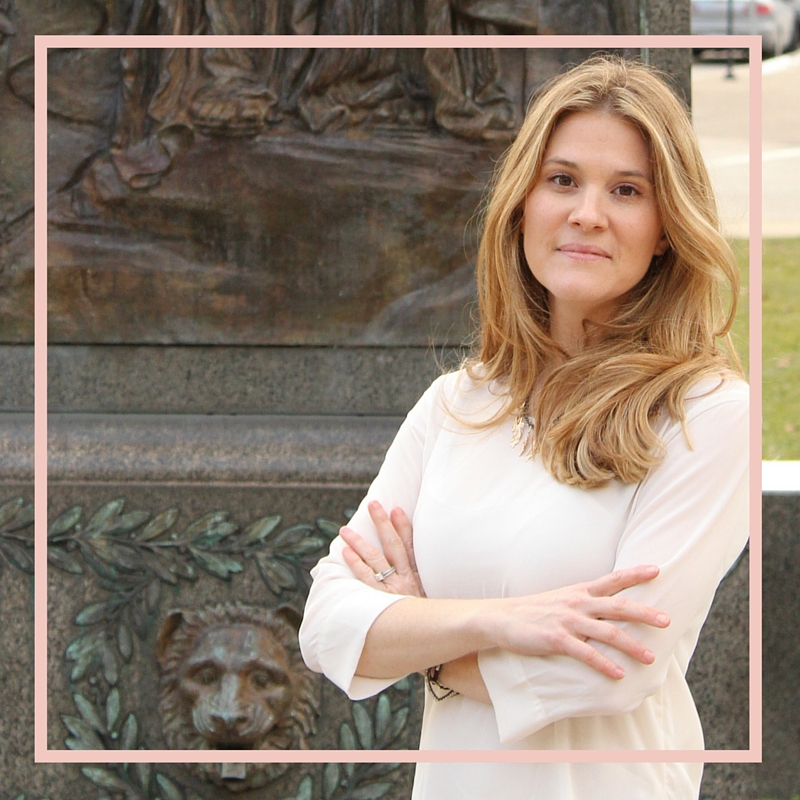
Hi! I’m Leighann. I help busy women go from frazzled to fabulous. I talk about winning imperfectly at life, finding hope in every season, and learning to manage stress while accomplishing your goals. But wait! I have two freebies below – don’t miss out on them – one to cultivate more calm in your life and the other to increase your productivity. Download them now!
